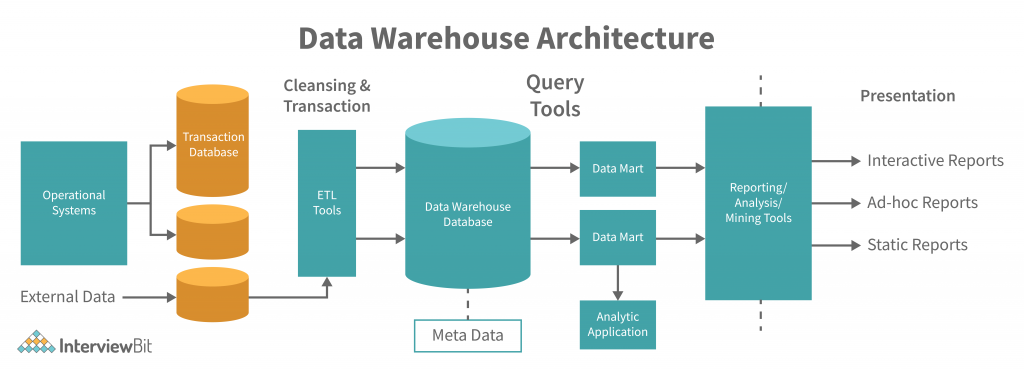Why is Data Warehousing Important?
In today’s digital world, organizations generate vast amounts of data daily. Proper management, storage, and retrieval of this data are critical for businesses to operate efficiently and make data-driven decisions. This is where data warehousing becomes indispensable. So, why is data warehousing important? It helps businesses organize and store their data in a centralized repository, making it easier to manage. But, why is data warehousing important for companies aiming to streamline their operations? It ensures that data is not only accessible but also accurate and secure, enabling informed decision-making.
Partnering with Savvycom, a leading software development company, ensures that your business can leverage advanced data warehousing solutions to enhance performance, streamline operations, and unlock the full potential of your data. Ultimately, understanding why data warehousing is important can drive business success by optimizing data usage and improving operational efficiency. Let’s explore with us via this article!
How Does Data Warehousing Work?
A data warehouse is a centralized repository designed to store large volumes of structured and semi-structured data from various sources. These sources may include transactional databases, log files, external data, and more.
Data warehousing involves three main steps: extraction, transformation, and loading (ETL).
- Extraction: Data is gathered from multiple sources.
- Transformation: The data is cleaned, organized, and transformed into a format that is easy to analyze.
- Loading: The transformed data is loaded into the data warehouse.
This process ensures that businesses can access data that has been aggregated and processed for analysis. With a data warehouse, organizations are equipped to handle complex queries, perform business intelligence tasks, and track performance over time.
Why Is Data Warehousing Important?
Data warehousing plays a vital role in helping organizations manage their data effectively. So, why is data warehousing important? Now, let’s dive deeper into why data warehousing is important.
Accessible Data to Boost Efficiency
The main reason why is data warehousing important is its ability to provide quick access to data. A well-structured data warehouse ensures that employees can access relevant data quickly, improving overall business efficiency. Having all data consolidated in one location eliminates the need for complex searches across multiple systems, allowing users to find information faster.
According to a study by MCkinsey, companies that invest in data and analytics achieve five to six times higher return on investment (ROI) than those that don’t. Efficient data retrieval enables faster analysis, making the entire decision-making process smoother and more effective. For businesses working with large datasets, quick access to the required data is invaluable.
Ensures Data Quality and Consistency
One of the main reasons why data warehousing is important is its ability to ensure data quality and consistency. A good data warehouse structure allows businesses to clean, transform, and standardize their data before it’s loaded into the system. This process ensures that the data is accurate, consistent, and free from duplicates or errors.
Inconsistent or erroneous data can lead to incorrect decisions, making data quality assurance a priority. According to a report by IBM, poor data quality costs businesses approximately $3.1 trillion per year in the U.S. alone. When organizations rely on accurate data, they can make confident decisions, reducing risks and optimizing operations.

Image source: Anodot
Retrieving Historical Data
Data warehousing allows organizations to store historical data, which can be crucial for tracking performance over time and identifying trends. Having access to historical data enables businesses to make comparisons, evaluate past performance, and forecast future trends. This is especially important for long-term decision-making and strategy development.
Why is data warehousing important in this context? It enables the retrieval of both current and historical data from a single repository, making it easier for businesses to analyze past performance and make informed future decisions.
Helps in Decision-Making
For decision-makers, having a comprehensive and up-to-date view of data is essential. Data warehousing provides a robust platform for data analytics, making it easier to perform detailed analyses. With accurate and well-organized data, managers can make faster and more informed decisions, improving operational efficiency and profitability.
Data warehousing also facilitates reporting and the generation of insights from large datasets. The ability to consolidate data from multiple departments, systems, and external sources ensures that decision-makers have a complete view of the organization’s performance. A report from PwC revealed that 72% of executives consider data analytics to be critical for improving decision-making and achieving business goals.
Generates Revenue
The insights derived from a data warehouse can directly impact an organization’s bottom line. By analyzing historical data, organizations can identify customer preferences, market trends, and areas for improvement. This information can help businesses design new products, optimize marketing strategies, and enhance customer experience—all of which contribute to generating revenue.
Data warehousing also helps businesses identify inefficiencies and areas where costs can be cut, directly improving profitability. By making data-driven decisions, businesses are better equipped to grow and remain competitive. According to a study by McKinsey, organizations that use data to inform decision-making are 23 times more likely to acquire customers and 6 times more likely to retain them.

Image source: Tasil
Secure Data
Data security is a growing concern for businesses worldwide, especially with the rise of cyber threats. A well-designed data warehouse ensures that data is securely stored and protected. Through secure data encryption and advanced security protocols, data warehousing helps safeguard sensitive information from unauthorized access.
For businesses that deal with personally identifiable information (PII) or financial data, the importance of secure data storage cannot be overstated. Proper data warehousing practices help minimize the risk of data breaches and ensure compliance with industry regulations, such as GDPR and HIPAA. In fact, a report by Cybersecurity Insiders revealed that 56% of organizations have invested in data encryption to improve security and compliance efforts.
Get in touch with Savvycom for a free consultation. We’ll help you decide on next steps, explain how the development process is organized, and provide you with a free project estimate.
Key Features of Data Warehousing
Data warehousing offers several key features that make it an essential part of modern business infrastructure:
- Data Integration: Data from different sources is consolidated into a single repository, making it easier to analyze.
- Data Consolidation: Multiple datasets are merged into one format to streamline analysis.
- Data Quality Management: Data is cleaned and standardized, ensuring consistency.
- Historical Data Storage: Data warehouses are designed to store large amounts of historical data for analysis.
- Data Security: Advanced encryption and access control mechanisms help protect sensitive data.
Data Warehouse Architecture
The architecture of a data warehouse is designed to handle complex queries and large volumes of data.

Image source: InterviewBit
The architecture typically consists of three main layers:
- Data Source Layer: Where raw data is gathered from operational systems, external sources, and databases.
- Data Staging Layer: Where data is cleaned, transformed, and prepared for loading into the data warehouse.
- Data Warehouse Layer: The actual data warehouse, where the processed data is stored and made available for analysis.
This layered approach ensures that data is processed efficiently and that users have access to high-quality, accurate information when needed.
Cloud Data Warehouse
With the growing demand for scalable and cost-effective data solutions, cloud-based data warehouses have gained popularity. A cloud data warehouse eliminates the need for on-premises hardware and offers flexible scalability, making it an ideal solution for businesses of all sizes.
Cloud-based data warehouses, such as Amazon Redshift, Google BigQuery, and Snowflake, offer several benefits:
- Scalability: Businesses can scale their data storage and processing needs as they grow.
- Cost Efficiency: With a pay-as-you-go model, businesses only pay for the storage and compute resources they use.
- Flexibility: Cloud data warehouses can be accessed from anywhere, allowing teams to work remotely.
Why is data warehousing important in the cloud? Cloud data warehouses offer greater flexibility, cost savings, and scalability compared to traditional on-premises solutions.
Data Warehouse Examples
Several large organizations rely on data warehousing to streamline their operations and make data-driven decisions. Some notable examples of data warehousing solutions include:
- Amazon Redshift: A fully managed data warehouse service in the cloud that offers fast query performance and scalability.
- Google BigQuery: A cloud-based data warehouse that offers real-time analytics and is known for its speed and ease of use.
- Snowflake: A cloud data platform that provides seamless integration, scalability, and security for data warehousing.
These platforms are widely used across industries to manage large datasets, conduct real-time analytics, and derive actionable insights.
Conclusion
Why is data warehousing important for businesses? It is crucial for effectively managing large volumes of data, ensuring that data is accessible, accurate, consistent, and secure. By centralizing data storage, it enables organizations to generate valuable insights for informed decision-making. Whether stored on-premises or in the cloud, data warehouses play a vital role in helping businesses navigate and succeed in an increasingly data-driven world. In this context, it empowers businesses to harness the full potential of their data, enhancing operational efficiency and supporting growth.
As a software development company, Savvycom understand why is data warehousing important for businesses. Hence, we provide comprehensive data services that ensure data quality assurance, secure data encryption, and robust data loss prevention cloud solutions. Our expertise in the stages of data processing and data analytics trends helps businesses leverage the full potential of their data. We also offer data analytics platforms that streamline data collection and analysis, making it easier for organizations to understand why data collection is important for their success.
If you are looking to optimize your data processes, reach out to Savvycom for a custom solution tailored to your business needs.
Tech Consulting, End-to-End Product Development, Cloud & DevOps Service! Since 2009, Savvycom has been harnessing digital technologies for the benefit of businesses, mid and large enterprises, and startups across the variety of industries. We can help you to build high-quality software solutions and products as well as deliver a wide range of related professional services.
Savvycom is right where you need. Contact us now for further consultation:
- Phone: +84 24 3202 9222
- Hotline: +1 408 663 8600 (US); +612 8006 1349 (AUS); +84 32 675 2886 (VN)
- Email: [email protected]


